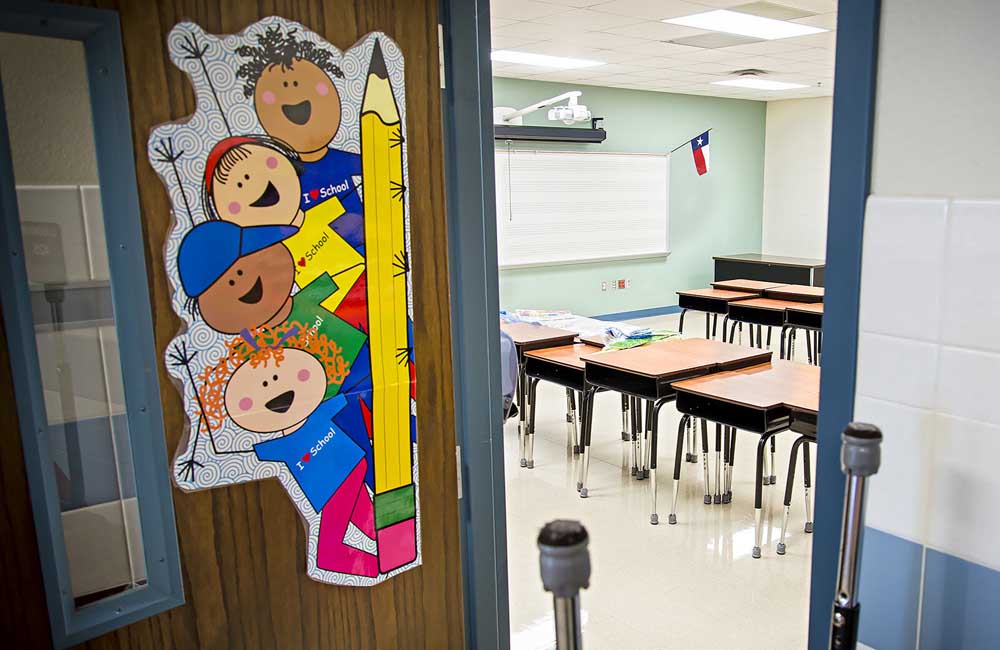Editorial: State needs better laws to keep special ed students safe in classrooms
Published 12:00 pm Friday, October 21, 2022

- A classroom is seen in East Texas. (Les Hassell/Tyler Morning Telegraph File)
Mass shooting tragedies have sharpened our resolve and forced enhanced safeguards to keep outside dangers from getting into our schools.
But the tools to protect our most vulnerable children from possible threats inside their own classrooms are sorely lacking — or lacking teeth.
Just how big of a problem in Texas is abuse of special education students by school employees? We don’t know, and we’re not alone.
Statistics on the number of abuse investigations involving educators and students with disabilities aren’t tracked by any state agency, including the Texas Department of Family and Protective Services or the Texas Education Agency.
In the East Texas area, however, former educators in two districts are facing charges.
Numerous Longview ISD special education students reportedly were abused by a group of six former J.L. Everhart Elementary School employees. All six have been charged, and the district recently agreed to a $2.5 million total settlement with the students’ families. And a Jefferson woman was arrested in August on a charge of injuring a child in a case involving a nonverbal, autistic special education student at what is now Marshall ISD’s Price T. Young Fine Arts Academy.
A state database that tracks investigations into abuse of special needs students would be a vital step toward accountability. Do certain districts have persistent cases of abuse allegations in their special education classrooms? If so, that could point to a larger problem related to a lack of training — or implementation of that training — or other issues that must be addressed.
In the Longview ISD case, video surveillance in the special education classroom at J.L. Everhart revealed the employees’ misconduct, according to a previous statement by the school district. But that video only was viewed at the request of a concerned parent.
That’s another problem that begs for a legislative solution.
Cameras are key in these types of classrooms. They provide evidence when educators don’t perform their jobs the right way.
Under state law, however, that important tool is limited to a puzzling set of conditions.
For example, school districts aren’t required to have cameras in classrooms with special education students, although they can choose to. (Longview ISD trustees voted earlier this year to install cameras in all its special ed classrooms.) However, districts must install a camera at the request of a special education parent.
But parents might have no idea they can request surveillance in a classroom, and advocacy groups want the law changed to require school districts to make that policy known.
Other changes those groups want is for schools to be required to keep video footage longer than is required now — which is 90 days — and to ease any restrictions that districts might place on parents trying to access recordings.
And just because a special education classroom has surveillance doesn’t necessarily guarantee possible misconduct will be seen. That’s because state law doesn’t mandate that camera footage be monitored or viewed unless there’s a written complaint.
Attorney Geoff Hoover, who represented the Longview ISD families in the settlement with the district, correctly pointed out a big reason why that part of the law is problematic: “Given that a lot of these special education students are non-verbal, it appears that a lot of the abuse (in Texas schools) goes unreported,” he said.
Other important changes we support are requiring the state’s regional education service centers to provide training for school staff members on how to “to interact appropriately and safely with students with disabilities” and expanding the Texas Do Not Hire Registry to include all educators who abuse students with disabilities so they can’t simply just find another job in a different district.
Ultimately, even with proper training, special education teachers must choose to exercise patience, compassion and empathy for the students under their care and supervision.
But if that trust is broken and the horrific happens, our state doesn’t need laws that set frustrating roadblocks to accountability, justice and reform.






